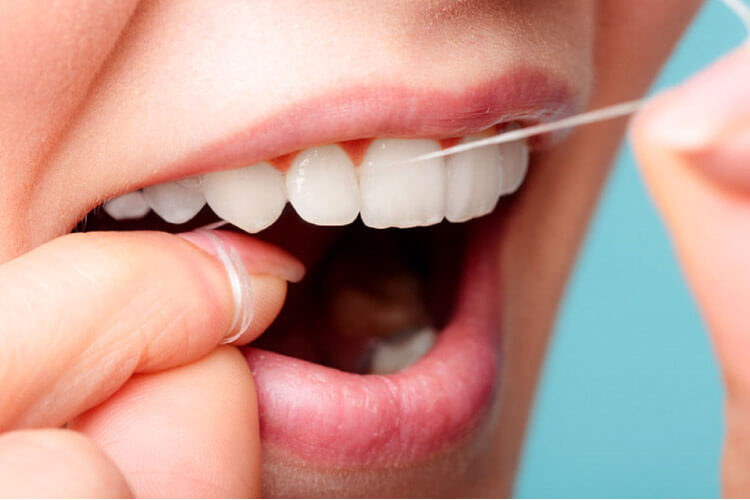Teeth have important functions in terms of completing the speech and appearance, as well as preparing the food for digestion by breaking down.
However, most people do not wash their teeth as often as necessary and do not pay attention to the foods they eat.
In such cases, people may experience problems with their teeth and gums.
You can protect your teeth and gums by following the recommendations below.
- Don’t Forget To Clean Your Mouth And Teeth
Oral hygiene is very important. The most effective method to achieve this is tooth brushing.
Do not forget to brush your teeth and tongue after every meal.
Why brushing teeth? Between our teeth in our mouth, the surface of the tongue, oral prosthesis or treatment tools (brackets, wires, bridges) can cause the accumulation of food residues.
These food residues create a good nutrient medium for microorganisms in the oral flora.
With the rapid proliferation of microorganisms in these areas, the oral flora deteriorates.
Normally, the oral flora contains many bacteria.
These bacteria form a sticky and colorless layer on the surface of the teeth, which we call bacterial plaque.
Dental plaque contains millions of bacteria.
As we mentioned above, these bacteria feed on food residues in the mouth and continue to multiply.
20 minutes is enough for a plaque to form and the bacteria it contains to start producing acid.
The acid dissolves the calcium in the tooth structure.
This causes the upper part of the tooth enamel to melt and eventually leads to tooth decay.
After tooth decay, symptoms such as tooth sensitivity to sudden temperature changes and sweet foods and bad breath begin to appear.
Another symptom of tooth decay is the formation of color changes (darkening, darkening) on different surfaces of the teeth.
Since there are bacteria in the mouth and we cannot stop eating, we all face the risk of tooth decay. In this regard, food residues in the mouth should be removed immediately after meals.
All creatures living in the world and having teeth are at risk of tooth decay.
However, those who have a large number of fillings in the mouth, those who have dry mouth problems, those who have the above-mentioned oral treatment apparatus, that is, those who receive orthodontic treatment, those who consume a lot of sugary foods, children and the elderly are at higher risk.
The contents of the foods eaten can also increase the risk of caries.
Foods containing high sugar, cola drinks, starchy foods increase the risk of tooth decay even more.
Visit Your Oral Doctor Often
From time to time, it is useful to have an oral examination in terms of both teeth and gums. Thus, if there is a problem in the mouth, there is a chance for timely intervention.
If dental plaque is not cleaned within 48 hours, it can turn into tartar.
The stone formed in the tooth is so hard that it is not possible to be cleaned by the person himself.
These stones can only be cleaned by the dentist.
These stones cause the hard layer of the tooth to melt, wear and cause gingival diseases.
For this reason, it is necessary to have dental calculus cleaning at certain periods.
Use Dental Floss And An Interdental Brush
Dental floss should be used at least once a day for oral care.
If cleaning with dental floss will be done once a day, it may be recommended to do it after dinner or before going to bed.
Do Not Snack Constantly, Avoid Sugary Foods
It becomes difficult to maintain an uninterrupted oral hygiene if something is constantly snacked on.
Sugary, starchy foods, cola and acidic beverages increase the risk of tooth decay as they increase the acidity in the mouth.
Do Not Bite Hard Objects With Your Teeth, Do Not Eat Extremely Cold Or Hot Foods
Hard foods cause tooth enamel cracks and tooth decay.
Similarly, extremely cold and extremely hot foods or drinks damage teeth and oral tissues.
Eating hot and cold foods one after the other is even more harmful.
Sudden temperature change can cause cracks in tooth enamel.
Pay Attention To Your Diet
Milk and dairy products rich in calcium and phosphorus should be consumed.
Chewing gum increases saliva secretion and can be effective in cleaning the mouth.
If chewing gum is to be chewed, it should be chewed for no more than 15 minutes after meals and sugar-free gum should be preferred.
What can be done to increase dental and gingival health is briefly summarized below:
- Brush your teeth for at least two minutes at least twice a day (after breakfast and before going to bed). After brushing the teeth, it is necessary to brush the tongue.
- Improper brushing can damage the gums and cause the enamel to be eroded.
- Clean between teeth with dental floss once a day. You can use an interface brush to clean the sides of the teeth.
- You can also use mouthwashes recommended by your dentist for oral hygiene.
- Stay away from cigarettes. Cigarette smoke adversely affects the health of the oral tissues and gums it comes into contact with, and increases the risk of gingivitis and periodontitis.
- Have a regular dental check-up and have dental calculus cleaned.
- Pay special attention to the cleaning of structures such as intraoral prostheses and bridges and have them checked.
- Avoid sugary foods. If sugary foods are eaten, brush your teeth immediately, if this is not possible, rinse your mouth with water.
- Avoid certain types of piercings, such as snake eyes piercing, as they will damage your teeth and gums.

